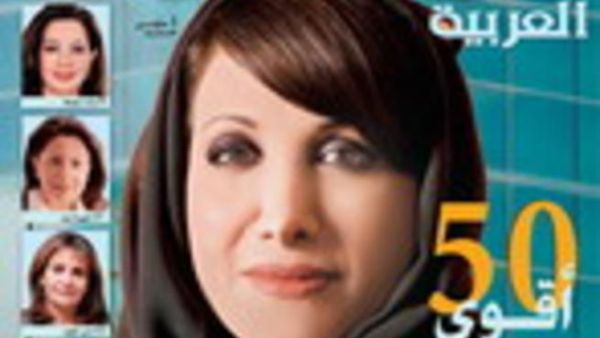Executives running but not owning their businesses have topped the 2008 "Forbes Arabia" List of the 50 Most Powerful Arab Businesswomen, surpassing 'stereotypic' businesswomen who are running their own businesses, "Forbes Arabia" magazine has unveiled in its May edition due to be issued on Wednesday.
Six out of the list's top ten are executives who are running major businesses mostly working in the areas of banking and investment services.
Topping the 2008 "Forbes Arabia" list was UAE's Salma Hareb, the chief executive officer of Economic Zones World (EZW) and Jebel Ali Free Zone Authority (JAFZA). She was followed by Kuwait's Maha Al Ghunaim, chairperson of Global Investment House and Saudi Arabia's Lubna Olayan, chief executive officer and geneal manager of Olayan Financing Company (OFC), who had topped the 2006 list.
No. 4 was Saudi Arabia's Nahed Taher, founder and CEO of Gulf One Investment Bank, No. 5 was Kuwait's Sheikha Khaled Al Bahar, vice chief executive officer of the National Bank of Kuwait (NBK), and No. 6 was Egypt's Sahar el Sallab, vice chairperson of Commercial International Bank (CIB Egypt).
The 7th and 8th ranks were occupied by the UAE's Fatima Al Jaber, chief operating officer of Al Jaber Group and Raja Easa Saleh Al Gurg, managing director of Easa Saleh Al Gurg Group, while the 9th and 10 ranks were taken up by Kuwait's Sana Jumah, CEO of Kuwait Finance and Investment Company KFIC, and Suad Al Homaizi, founder and chairperson of Suad Al Homaizi Group.
The 2008 "Forbes Arabia" list saw 21 newcomers. "This large number does not mean that outgoing businesswomen's size of business has been reduced," said Refaat Jaafar, Managing Editor of "Forbes Arabia", the Arabic edition of US-based "Forbes". "Rather," he said, "it reflects the striking presence of newcomers who have shown perseverance in their societies that have now been supporting women's right in education and their active participation in society."
The 2008 "Forbes Arabia" list also saw continuing predominance by family business women, who run companies founded or owned by their parents, at the expense of self-built businesswomen.
Trade was the most highlighted business activity in the list (17 women), followed by manufacturing (8 women) and finance/banking services (7 women). Gulf dominance over the whole list is still on, with noticeable stress on leading ranks (29 versus 26 women in the 2006 list). Saudi businesswomen topped this year's list (9), followed by the UAE (8) and Kuwait (4). Egyptian businesswomen (7) were distributed almost equally along higher and lower ranks, while businesswomen belonging to the North Africa region struggled to get a few places in the lower ranks.
Jaafar refers Gulf predominance over this year's list "to the economic boom that countries such as Saudi Arabia, Kuwait and the UAE have experienced in the past few years,” adding that "such boom paves the way for everyone – whether a man or woman - to excel in the world of business."
This year's list saw for the first time the introduction of businesswomen aged below 30; 28-year-old Egyptian Farida Mohammed Farid Khamis, vice chairperson of "Oriental Weavers Carpet", UAE's 27-year-old Amna BinHendi, CEO of BinHendi Enterprises and 28-year-old Amina Dasmal, chairperson of Alcove Entertainment of the UAE. Meanwhile, the above- 40 businesswomen's share has remained as high as the previous list, at 18 per cent.
"Forbes Arabia", whose first issue was published in Dubai in 2004, is renowned for its lists of celebrities and the rich. The most recent one, entitled "Religion Stars", which discussed the annual income of "neo-preachers", generated considerable media attention across the region following its release in February 2008.







